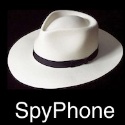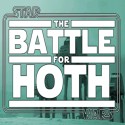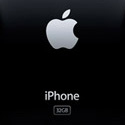US Library of Congress makes jailbreaking legal
 In an unexpected turn of events yesterday, the United States Library of Congress ruled that unlocking your iPhone and other smartphones is now legal under fair-use rules and therefore legal.
In an unexpected turn of events yesterday, the United States Library of Congress ruled that unlocking your iPhone and other smartphones is now legal under fair-use rules and therefore legal.

In an unexpected turn of events yesterday, the United States Library of Congress ruled that unlocking your iPhone and other smartphones is now legal under fair-use rules and therefore legal. The Electronic Frontier Foundation is reporting that “jailbreaking” will now be included in the list of practices that do not violate the Digital Millennium Copyright Act (DMCA).
The exemptions were granted as part of a statutorily prescribed rulemaking process, conducted every three years to mitigate the danger the DMCA poses to legitimate, non-infringing uses of copyrighted materials. The DMCA prohibits “circumventing” digital rights management (DRM) and “other technical protection measures” used to control access to copyrighted works. While the DMCA still chills competition, free speech, and fair use, today’s exemptions take unprecedented new strides towards protecting more consumers and artists from its extensive reach.
The first of EFF’s three successful requests clarifies the legality of cell phone “jailbreaking” — software modifications that liberate iPhones and other handsets to run applications from sources other than those approved by the phone maker. More than a million iPhone owners are said to have “jailbroken” their handsets in order to change wireless providers or use applications obtained from sources other than Apple’s own iTunes “App Store,” and many more have expressed a desire to do so. But the threat of DMCA liability had previously endangered these customers and alternate applications stores.
In its reasoning in favor of EFF’s jailbreaking exemption, the Copyright Office rejected Apple’s claim that copyright law prevents people from installing unapproved programs on iPhones: “When one jailbreaks a smartphone in order to make the operating system on that phone interoperable with an independently created application that has not been approved by the maker of the smartphone or the maker of its operating system, the modifications that are made purely for the purpose of such interoperability are fair uses.”
You can read more details about the ruling at the source link below.
Big thanks to Henri and gg999 for the tips!
Via [EFF]



